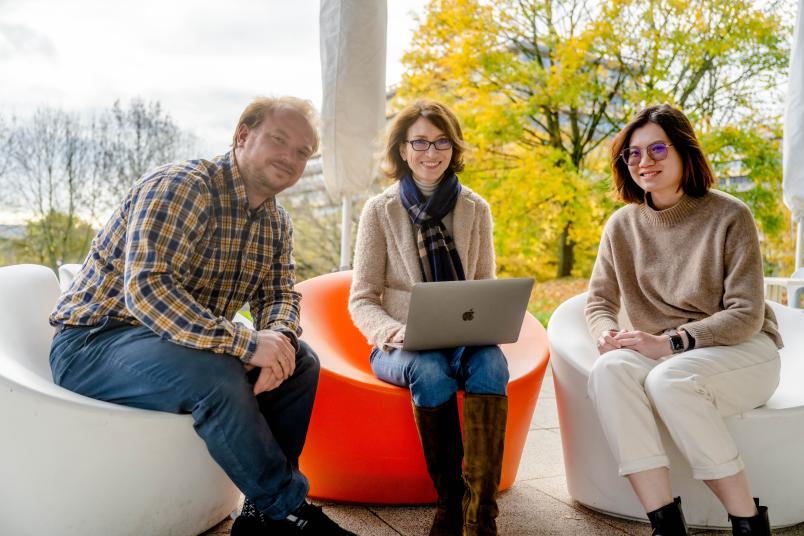
Medicine
Mitochondria transmit signals in the immune and nervous systems
New insights into the function of mitochondria reveal interfaces between the nervous and immune systems.
Mitochondria are primarily known as the powerhouse of the cell. However, these cellular organelles are required not only for providing energy: Professor Konstanze Winklhofer and her group at the Faculty of Medicine at Ruhr University Bochum, Germany, recently discovered that mitochondria play an important role in signal transduction in innate immune pathways. They regulate a signalling pathway that helps to eliminate pathogens, but can cause damage through inflammation upon overactivation. The research team published their findings in the EMBO Journal of 17. November 2022.
Protection from bacteria and viruses
Certain cytokines but also intracellular pathogens, such as viruses and some bacteria, activate the transcription factor NF-κB, which regulates the expression of various genes. “Depending on the stimulus and the cell type, NF-κB activation results in protection from cell death and increased synthesis of proteins required for the elimination of bacteria or viruses,” explains Konstanze Winklhofer. However, upon excessive and prolonged activation, this basically protective pathway can cause chronic inflammation. “Hence, a fine-tuned regulation of these signalling processes is of great medical relevance, in order to prevent pathophysiological conditions caused by either inefficient or overshooting NF-κB activation.”
Two advantages of mitochondria: they are mobile and have a large surface area
The new study has revealed that mitochondria play a crucial role in the regulation of the NF-κB signalling pathway. Within minutes after pathway activation, a signalling platform assembles at the outer mitochondrial membrane, resulting in the activation of NF-κB. “This allows signal amplification, based on the large surface of mitochondria,” says Konstanze Winklhofer. “Moreover, mitochondria have another capacity that qualifies them as organelles for signal transduction: they are mobile and can dock onto motor proteins in the cell.” The research team observed that mitochondria escort the activated transcription factor NF-κB to the nuclear membrane, thus facilitating the translocation of NF-κB into the nucleus.
However, mitochondria are not only involved in the efficient activation of the NF-κB signalling pathway; they also contribute to the deactivation and thus regulation of the signal. This is accomplished by an enzyme located at the outer mitochondrial membrane, which counteracts ubiquitination, a posttranslational modification required for NF-κB activation.
Why Parkinson’s disease patients are more susceptible to some infections
Two genes causally linked to Parkinson's disease are involved in the mitochondrial regulation of the NF-κB signalling pathway: PINK1 and Parkin. “Our findings explain why mutations resulting in a loss of PINK1 or Parkin function promote neuronal cell death under stress conditions,” points out Konstanze Winklhofer. “Remarkably, our findings show that Parkinson’s disease patients with mutations in the PINK1 or Parkin gene show an increased vulnerability to various infections caused by intracellular pathogens. Thus, our study also helps to gain a better understanding of the interfaces between the nervous and immune system.”